We're hiring ! Join us and make a difference in our hospitals
Neonatal Department
Our role
The Neonatology Department of the Brussels University Hospital provides specialized care and monitoring for newborns experiencing cardio-respiratory adaptation challenges, infections, congenital anomalies, or premature birth.
The department operates across two sites: the Children's University Hospital and the Erasme Hospital. The complementary expertise of these two hospitals ensures a comprehensive care experience for patients and their families, tailored to the type of condition, its severity, and the patient's gestational age.
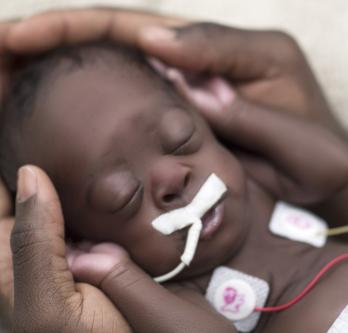
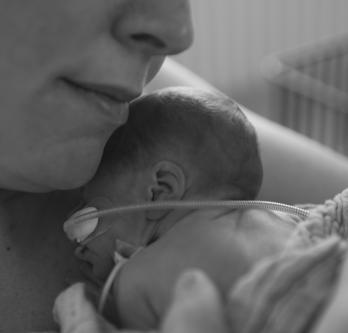
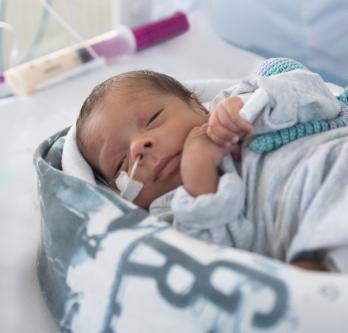
"The medical and nursing team is attentive to developmental care centred on the child and family. The care is adapted according to the rhythm and needs of the newborn. Parents play a central role through their presence, "skin to skin" contact and breastfeeding. A milk bank also makes it possible to conserve milk expressed at the hospital or at home that is not used immediately."
Our specialities
The Neonatal Department is careful to respect the best available standards and to draw maximum benefit from the focus on care quality and safety. One of its strengths is the multidisciplinary approach to complex pathologies when diagnosing, treating and following up newborns, coupled with psychological and social support for the parents and family.
The department cooperates closely with many other child medicine specialities (cardiology, nephrology, endocrinology, neurology, haemato-oncology, nutrition, surgery, anaesthesia, radiology, child psychology, etc.)
The multidisciplinary approach begins during pregnancy thanks to collaboration with doctors specialising in maternal and foetal medicine at the Erasmus Hospital and the CHU Brugmann. This continues after hospitalisation through the multidisciplinary consultations at the Children's University Hospital (oesophageal atresia, congenital diaphragmatic hernia, bronchopulmonary dysplasia, follow-up of parents-child relationship) and at the Erasmus Hospital (follow-up of development in the case of extremely preterm births.)
The Neonatal Intensive Care Department can count on the support of a liaison team. This permits the return home of newborns with severe illnesses or requiring specific care, under optimal conditions and according to a care
Our Team
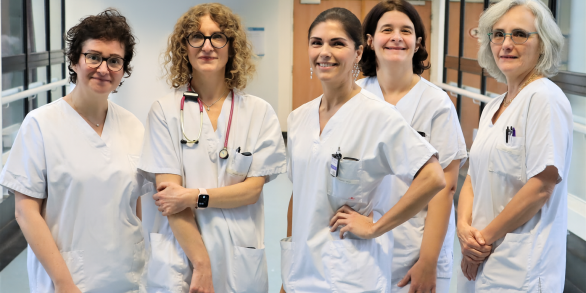
Our specialists
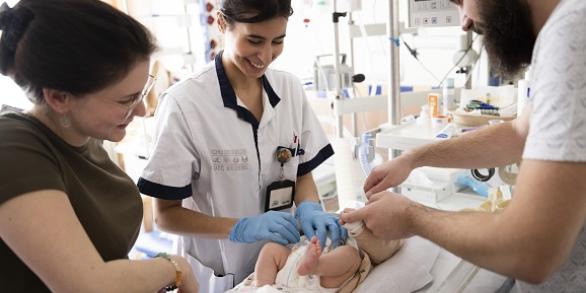
Research
The Neonatal Intensive Care Department has initiated a number of research projects:
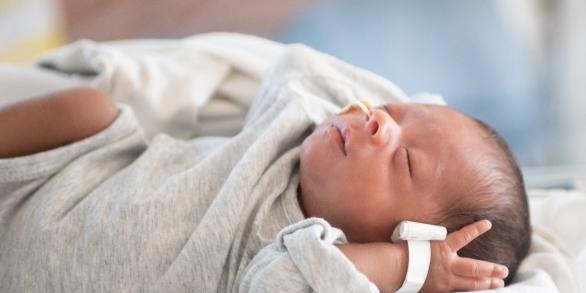
Teaching
The Neonatology Department is actively involved in teaching at the Université libre de Bruxelles and various higher education institutions in Brussels. This includes updated theoretical courses, bedside teaching, and simulation-based training using mannequins. The team also provides neonatal resuscitation training, supported by the European Resuscitation Council.
Focus
The Neonatal Intensive Care Department is a member of a number of hospital committees (ethics, transfusion, protocols, quality and safety).
Publications
Expectant Management or Early Ibuprofen for Patent Ductus Arteriosus
- Auteurs : Hundscheid T, Onland W, Kooi EMW, Vijlbrief DC, de Vries WB, Dijkman KP, van Kaam AH, Villamor E, Kroon AA, Visser R, Mulder-de Tollenaer SM, De Bisschop B, Dijk PH, Avino D, Hocq C, Zecic A, Meeus M, de Baat T, Derriks F, Henriksen TB, Kyng KJ, Donders R, Nuytemans DHGM, Van Overmeire B, Mulder AL, de Boode WP; BeNeDuctus Trial Investigators.
- Journal : New England Journal of Medicine 2023;388(11):980-990.
Parental participation: essential for developmental care but challenging in neonatal wards
- Auteurs : Young C, Vuckovic A, Bollen B, Kelen D, Lefevere J, Vicari A, Le Brun A.
- Journal : Belgian Journal of Paediatrics 2022;24(1):49-53.
Remifentanil versus morphine-midazolam premedication on the quality of endotracheal intubation in neonates: a noninferiority randomized trial.
- Auteurs : Avino D, Zhang, WH, De Villé A, Johansson AB.
- Journal : Journal of pediatrics 2014;164(5)1032–1037.
Increased TGF-β: a drawback of tracheal occlusion in human and experimental congenital diaphragmatic hernia?
- Auteurs : Vuckovic A, Herber-Jonat S, Flemmer AW, Ruehl IM, Votino C, Segers V, Benachi A, Martinovic J, Nowakowska D, Dzieniecka M, Jani, JC.
- Journal : American journal of physiology Lung cellular and molecular physiology 2016;310(4):L311–L327.